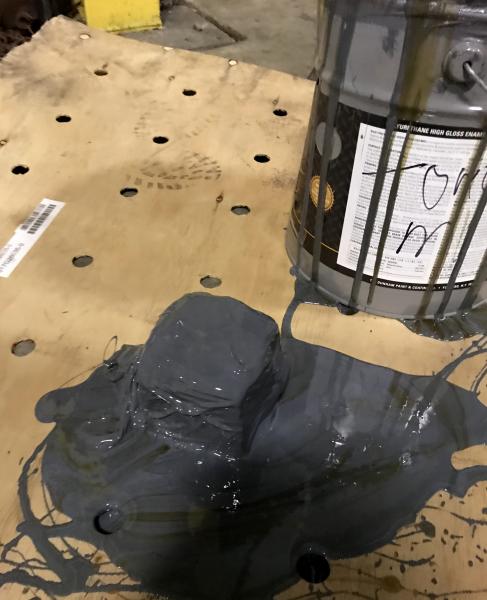WILMINGTON, Delaware – A joint U.S. Customs and Border Protection (CBP) and U.S. Coast Guard (USCG) Sector Delaware Bay inspection discovered nearly 400 rounds of ammunition December 30 at the Port of Wilmington, Del., that was concealed inside a paint can in household goods destined to Honduras.

concealed inside a paint can.
CBP officers used a mobile x-ray to scan a pallet of nine five-gallon paint cans and detected an anomaly in one can. Officers opened the paint can and discovered 387 rounds of .22 caliber ammunition wrapped in plastic. CBP officers seized the ammunition for violating U.S. export laws.
It is illegal to export firearms, weapons parts and ammunition without a federal license and permit from the U.S. Department of Commerce or the U.S. Department of State. CBP officers seized the weapon, magazine and ammo.
An investigation continues.
CBP and the USCG routinely partner during outbound examinations. During a previous joint examination on October 4, officers discovered and seized a handgun and 1,498 rounds of ammo destined to Honduras.
“Customs and Border Protection remains vigilant in partnering with our law enforcement partners like the U.S. Coast Guard to intercept illegally exported firearms, ammunition and other illicit weapons,” said Casey Durst, Director of Field Operations for CBP’s Baltimore Field Office. “Ultimately, we do not want illegally exported weapons ending up in the hands of criminals or criminal organizations, in our communities, or abroad.”
“The U.S. Coast Guard is committed to disrupting criminal activities through our waterways in conjunction with our port partners,” said Cmdr. Kristi Bernstein, Coast Guard Sector Delaware Bay Chief of Response. “These types of joint operations with Customs and Border Protection help unify law enforcement efforts to disrupt, detect, and deter illegal activities.”
CBP's border security mission is led at ports of entry by CBP officers from the Office of Field Operations. CBP officers use a variety of techniques to intercept narcotics, unreported currency, weapons, prohibited agriculture, and other illicit products, and to assure that global tourism remains safe and strong.
Please visit CBP Ports of Entry to learn more about how CBP’s Office of Field Operations secures our nation’s borders.
Read what CBP achieved on a typical day during 2018. Learn more about CBP by visiting www.CBP.gov.


